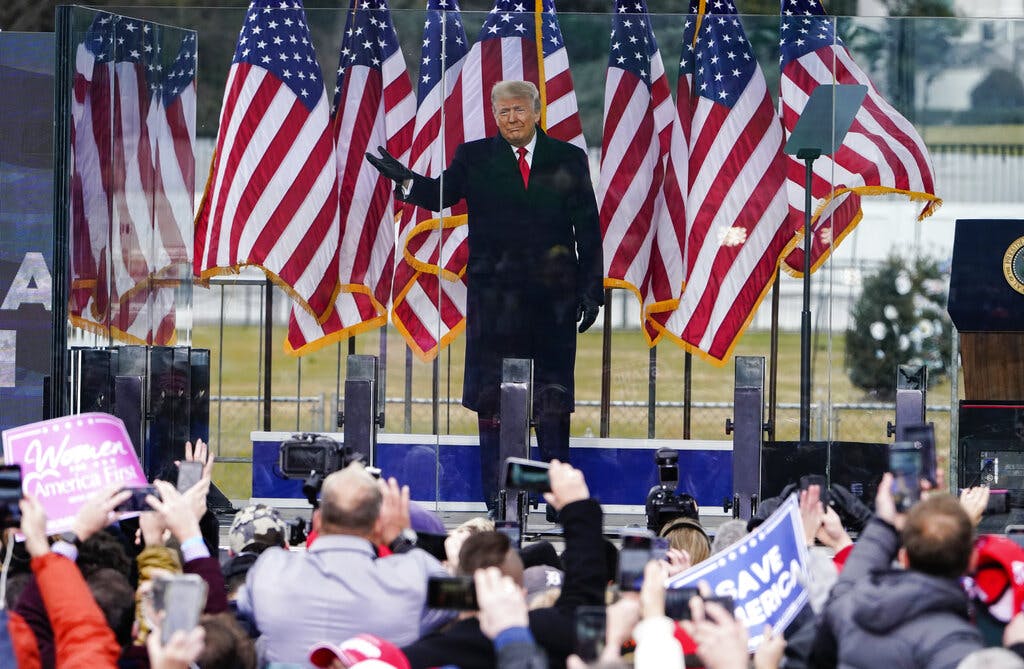Did the Supreme Court Just Give Jack Smith the Green Light To Charge Trump for January 6?
One leading conservative jurist appears to think so.

The Supreme Court’s decision in Moore v. Harper to reject the independent state legislature theory could give Special Counsel Jack Smith a free hand to bring charges — including, possibly, against President Trump — in respect of efforts to overturn the 2020 presidential election.
By a 6-to-3 vote, the high court held that notwithstanding the Constitution’s Elections Clause, the national parchment “does not exempt state legislatures from the ordinary constraints imposed by state law,” meaning that state lawmakers are bound by state constitutions and the judges who interpret them.
The link between Chief Justice Roberts’s opinion and Mr. Smith’s prosecutorial potential was ventured on CNN by a retired judge, Michael Luttig, who clerked for Judge — later Justice — Antonin Scalia, spent 15 years as a rider on the Fourth United States Appeals Circuit, and is now one of President Trump’s legal antagonists.
More than two dozen of Judge Luttig’s clerks went on to fill the same position for Justices Clarence Thomas and Scalia — in the legal world, they are called “Luttigators.” In 2016, Senator Cruz, a former clerk, said that Judge Luttig was “like a father” to him.
The link — which has in turn riven the tightly knit elite legal world — between the now-repudiated independent state legislature theory and President Trump’s post-election machinations appears to be an attorney, John Eastman, who clerked for Judge Luttig and advised Mr. Trump, in the White House, about his legal options in the early days of 2021.
Judge Luttig told Anderson Cooper that the “independent state legislature theory was the centerpiece of that effort to overturn the 2020 presidential election,” which Attorney General Garland charged Mr. Smith with investigating, alongside the latter’s separate probe into the classified documents found at Mar-a-Lago.
Judge Luttig added: “If I were Jack Smith or the attorney general of the United States, I would have needed today’s decision in order to proceed with charges against the former president and his allies and compatriots.” On Twitter, he called the decision the “single most important constitutional case for American Democracy since the Nation’s Founding almost 250 years ago.”
In a series of memoranda, Mr. Eastman made the case that Vice President Pence possessed the constitutional authority to refuse to certify electors committed to voting for Mr. Biden, paving the way for an alternative slate that would have committed to standing for Mr. Trump. Judge Luttig tweeted that he believes Mr. Eastman “was incorrect at every turn of the analysis.”
Inasmuch as Mr. Eastman’s plan relied on state legislatures to sponsor their own electors free from judicial review or the strictures of their state constitutions, it was indebted to the independent state legislature theory. Seven states submitted an alternative slate of electors, which the National Archives refused to consider.
That scheme, which Judge Luttig urged Mr. Pence to reject, is the basis for a criminal investigation by both Mr. Smith and the district attorney of Fulton County, Fani Willis. The prosecutors appear to be especially attentive to the scheme to use alternative electors. Mr. Eastman is also facing disciplinary proceedings undertaken by the California Bar Association.
The Sun spoke to the attorney representing Mr. Eastman in the Georgia probe, Harvey Silverglate, who told this correspondent, “I don’t believe that a crime was committed” by his client, who claims he was exercising his First Amendment right to speech. He promises that if Mr. Eastman is indicted, “he will go to trial and expect to win.”
Judge Luttig told the January 6 committee that it was “breathtaking” that Mr. Eastman’s “arguments even were conceived, let alone entertained by the president of the United States at that perilous moment in history.” He called January 6, 2021, the “final fateful day for the execution of a well-developed plan by the former president to overturn the 2020 presidential election.”
In a letter Mr. Pence issued on January 6 explaining his resistance to Mr. Trump’s cajoling, the vice president cited Judge Luttig to the effect that the “Constitution does not empower the Vice President to alter in any way the votes that have been cast, either by rejecting certain votes or otherwise.”
Mr. Eastman filed an amicus — or “friend of the court” — brief before Moore was decided, arguing in favor of the independent state legislature theory. He reasoned that because the responsibility for legislatures to run elections was “conferred by the federal constitution, it cannot be constrained by anything in state law or state constitutions to the contrary.”
After Moore came down, Mr. Eastman has echoed the position of its dissenters — Justices Thomas, Neil Gorsuch, and Samuel Alito — that the holding will precipitate a “litigation bonanza” as a blizzard of lawsuits challenging election procedures will blow through state courts, to be evaluated by the “ordinary bounds of judicial review.”
Justice Thomas’s dissent, which syncs with Mr. Eastman’s stance, thunders that the court should never have heard Moore because its “question is indisputably moot,” as “no live controversy remains before this Court.” On the merits, he contends that constitutions can “prescribe how legislative power is exercised, but they cannot control what substantive laws can be made for federal elections.” Mr. Eastman would recognize that stance.
Predicting “lawfare,” Mr. Eastman adds that “there will be lots of lawsuits brought ahead of time to alter election laws, or weaken election laws that the state legislatures put in place to protect against risk of fraud.” The Biden administration — like Justice Thomas — took the position that the issue was moot.
The lawyer who argued Moore v. Harper and pushed the justices to decide it on the merits, Neal Katyal, took to Twitter to report: “All our supposed allies, including the Biden Administration’s Justice Dept, tried to get rid of the case, telling the Court they couldn’t decide it. We stood alone.”

